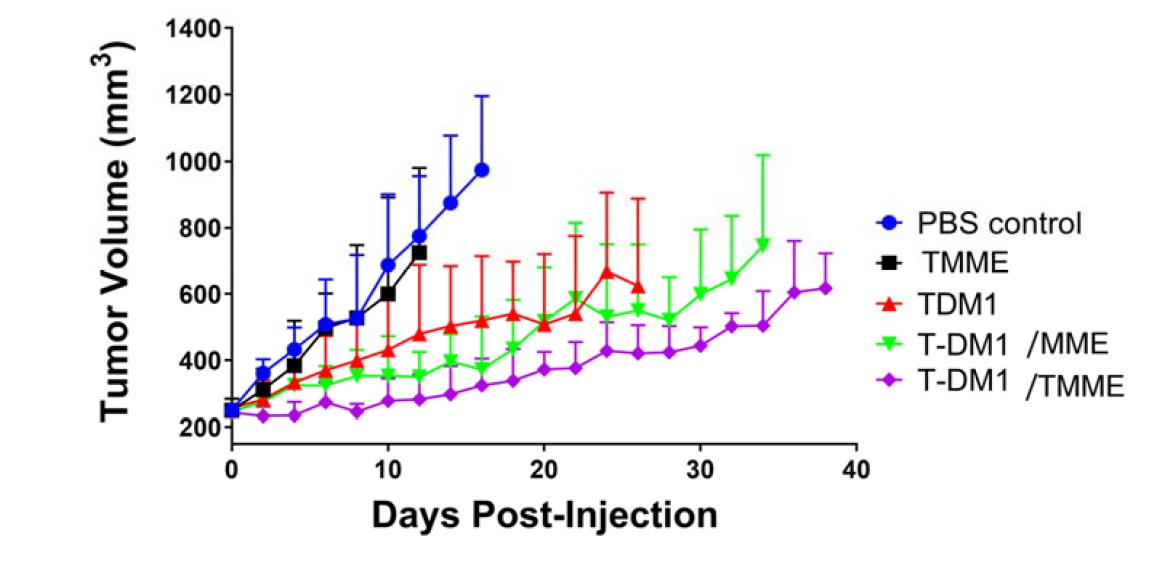Targeted Delivery of Matrix-Modulating Enzymes
For enhanced monoclonal antibody uptake and distribution in solid tumors.
Penetration of anti-tumor therapies is often limited by the tumor microenvironment, which can include a high density of extracellular matrix as well as elevated interstitial fluid pressure, both of which create a barrier to distribution. It is well established that limited intratumoral distribution of anti-tumor agents leads to sub-optimal efficacy.
The compositions disclosed here by University at Buffalo researchers enable improved uptake and distribution of anticancer agents, including mAbs and ADCs, with lessened concerns for toxicity due to the presence of targeting domains in combination with the matrix-modulating enzyme (MME).
In a tumor xenograft model, when trastuzumab was administered following a dose of an untargeted MME, its distribution away from vasculature(red) was limited relative to its administration following a dose of a targeted matrix-modulating enzyme (TMME) (data not shown). As observed in an example using a trastuzumab-based ADC (data below), the increased distribution of the ADC following administration of a TMME translated to an increase in survival compared to the ADC administered alone or following administration of an untargeted MME and both the TMME (alone) and control. These TMMEs can be used in combination with other anticancer therapies to improve their efficacy.

https://www.proquest.com/pqdtglobal/docview/2417300634/1128520C22B743BAPQ/3?accountid=14169
US Patent Application US20220363778A1 filed 25 February 2022
Technology available for licensing.
Patent Information:
| App Type |
Country |
Serial No. |
Patent No. |
Patent Status |
File Date |
Issued Date |
Expire Date |
|